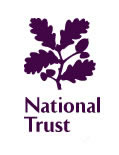National Trust's Director-General to step down
Released on: March 15, 2012, 10:59 am
Author: National Trust
Industry:
Non Profit
The National Trust has announced that Fiona Reynolds has decided to leave the charity after more than 11 years as Director-General.
Fiona is to take up her duties as Master of Emmanuel College, University of Cambridge, in the autumn of 2013 - the first woman to be elected Master in the College's history.
She said: "As a graduate of Cambridge I am thrilled to be going back to head one of its finest colleges.
"I have loved every minute leading the National Trust and working with our passionate and dedicated staff, volunteers and supporters.
"I am incredibly proud of all that we have achieved in the last 11 years.
"There is no organisation like it and I will miss it terribly. But it is time to allow someone else an opportunity to make their mark."
Fiona has overseen a period of transformational change at the National Trust, reconnecting the organisation with its original founding purpose, and infusing it with warmth and liveliness.
Membership hit four million last year from 2.7 million in 2001, and visitor numbers to the Trust's 300 properties reached 19 million from 10 million a decade ago. Volunteer numbers have also doubled, with 62,000 people involved last year.
From her earliest days at the Trust Fiona pioneered an 'arms open' approach to conservation, bringing expert work out from behind closed doors to take place in front of visitors, now an integral part of the Trust’s programme to bring places to life.
Property acquisitions have included the vast Victorian Gothic Tyntesfield and its estate near Bristol, Vanbrugh’s Seaton Delaval Hall in Northumberland, the 'back-to-back' terraced houses in Birmingham, John Lennon's boyhood home in Liverpool and the quirky home of Kenyan-born poet Khadambi Asalache in Wandsworth.
These acquisitions have been part of a concerted focus on social and community relevance for the Trust, recently underlined by the long-term lease taken out on Tredegar House in South East Wales.
As a geographer and walker with a passionate interest in landscape, she has systematically added to the 617,000 acres of countryside under the Trust's care.
During this time she has championed the importance of access to the outdoors and nature for people's wellbeing and promoted local and seasonal food with a drive to create 1,000 new allotments on National Trust land.
Most recently, this included the acquisition of the 617-acre Llyndy Isaf estate near Snowdon after a public appeal raised £1 million in seven months from 20,000 donors.
She has overseen a restructure of the governance of the charity, from a 52-member Council to a 12-member Board of Trustees, as well as two major internal restructures which have strengthened and localised the organisation.
While maintaining the Trust's strict party-political neutrality, Fiona has championed its conservation principles, most recently leading the charge against proposed changes to the planning framework which, she warned, would bias planning towards excessive building in the countryside.
Fiona, 53, will continue in her post at the National Trust until her successor is in place. She plans to use the interval between leaving and moving to Cambridge in September 2013 to write a book about her years at the Trust.
-ENDS-
About The National Trust:
The National Trust is one of the most important nature conservation organisations in
Europe with over 1,000 sites covering 250,000 hectares, including coastal sites,
countryside places, woodland and upland areas; many of which are rich in wildlife.
All 17 species of UK bat have been recorded as roosting or breeding on National
Trust land and 96 per cent of all resident UK butterflies can be found on National
Trust property. The Trust offers many ideas for fun days out and things to do,
including countryside walks throughout locations across Britain.
For further information contact:
Steve Field
Assistant Press Officer
The National Trust
Heelis
Kemble Drive
Swindon
SN2 2NA
01793 817740
www.nationaltrust.org.uk
